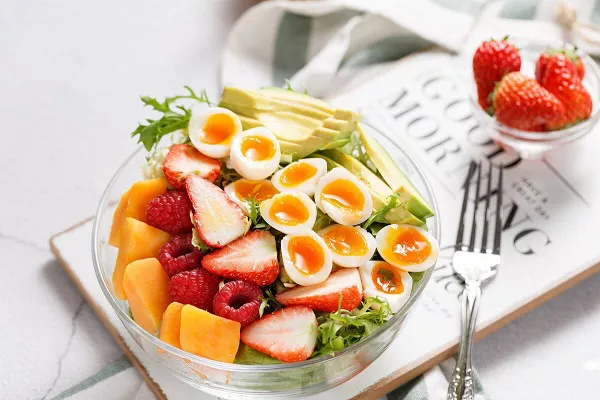We’ve all been there before- it’s late at night, and we’re feeling a little bit peckish. Maybe we didn’t eat enough dinner, or maybe we’re just craving something sweet or salty to help us wind down after a long day. Whatever the reason, it’s important to choose our nighttime snacks wisely.
While snacking before bed can be a bad habit for some individuals, choosing the right options can actually have health benefits. Research has shown that eating a small snack before bed can help regulate blood sugar levels, improve sleep quality, and even prevent overeating the next day.
So what makes a good nighttime snack? Here are some factors to consider:
Nutrient Density
One of the most important aspects of any snack- including those eaten before bed- is nutrient density. This means that the snack should provide a good balance of macronutrients (carbohydrates, protein, and fat) as well as vitamins and minerals.
Aim for snacks that contain complex carbohydrates, such as whole-grain crackers or fruit, which will provide sustained energy throughout the night. Pairing these with a protein source, such as cheese or nuts, can help keep you feeling full and satisfied.
Portion
Size While snacking before bed can be beneficial, it’s important not to overdo it. Consuming too many calories late at night can interfere with sleep and contribute to weight gain.
Stick to small portions of nutrient-dense snacks- around 100-200 calories is usually sufficient. Avoid snacking straight from the bag or container, as it can be easy to lose track of how much you’ve eaten.
Timing
It’s important to consider the timing of your nighttime snack. Eating too close to bedtime can interfere with sleep by causing indigestion or discomfort. Aim to eat your snack at least an hour before bed, giving your body time to digest and process the food.
What to Avoid
Not all snacks are created equal, and some are best left off the late-night menu. Avoid foods high in sugar or saturated fat, as these can cause blood sugar spikes and interfere with sleep. Additionally, caffeine and alcohol should be avoided close to bedtime, as they can disrupt sleep quality.
So what are some examples of healthy nighttime snacks? Here are a few ideas:
Greek Yogurt with Berries
Greek yogurt is an excellent source of protein, and pairing it with antioxidant-rich berries makes for a well-rounded snack. Try mixing a cup of plain Greek yogurt with a handful of fresh or frozen berries for a satisfying and nutritious treat.
Whole-Grain Crackers with Nut Butter
Whole-grain crackers provide complex carbohydrates, while nut butter (such as almond or peanut) provides healthy fats and protein. Spread a tablespoon of nut butter on a few crackers for a simple and filling snack.
Hard-Boiled Eggs
Eggs are a great source of protein, and hard-boiling them ahead of time makes for an easy grab-and-go snack. Keep a few on hand in the fridge for a quick and nutritious late-night option.
Air-Popped Popcorn
Popcorn is a low-calorie and fiber-rich snack that can help keep you feeling full without weighing you down. Opt for air-popped popcorn over microwave varieties, which can be high in unhealthy additives.
Sliced Veggies with Hummus
Vegetables such as carrots, cucumber, and bell peppers provide fiber and vitamins, while hummus adds protein and healthy fats. Slice up a few veggies and dip them in a couple tablespoons of hummus for a crunchy and satisfying snack.
Conclusion
Choosing a healthy nighttime snack is important for both health and sleep quality. Be sure to consider factors such as nutrient density, portion size, timing, and what to avoid when selecting your snack. And remember- a small snack can go a long way in helping you feel satiated and energized throughout the night.
Related topics:


